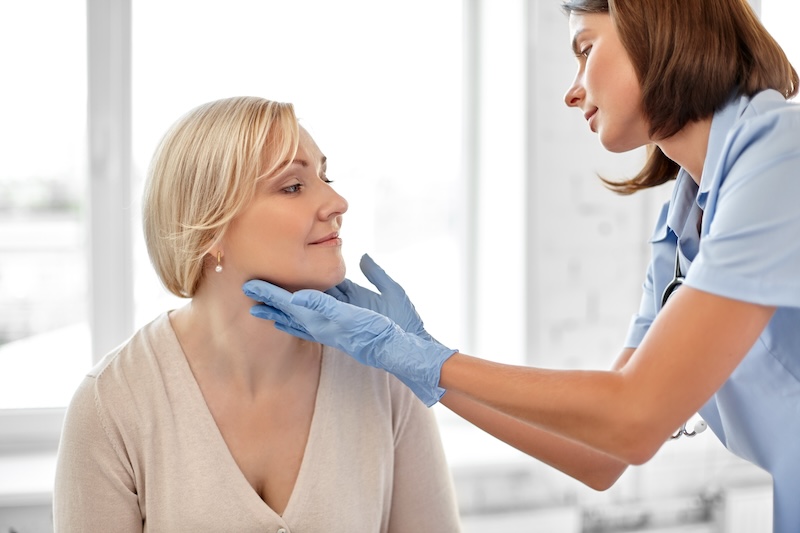When Wishful Thinking Doesn’t Help, Try Urgent Care
We all get sick or injured at some point and usually (incoming note of sarcasm) it comes at the “worst possible moment.”
Recently, I woke up one morning and couldn’t walk on or even put pressure on my right foot. I was just fine before bed, so it made no sense that I was all of a sudden hobbling to the kitchen for my morning tea.
I gobbled up some OTC pain meds, slathered my injury with Icy Hot and once I got to work began the self-diagnosis. After 10 minutes of internet searches and co-worker advice, we all concluded it was plantar fasciitis. The professional and amateur remedies ranged from “ice it/do stretches” to “go to the podiatrist.”
What followed was anxiety, a litany of excuses and my innate skepticism. How long will it take to make an appointment? Is my primary care physician available? Where is my doctor anyway? Will my insurance cover it? Do we really need feet?
By day three, wishful thinking and denial did nothing to cure the problem so I called a friend and begged for a ride to the nearest urgent care, willing to mortgage my house for a cure.
After four phone calls to see who would take my insurance, I found American Urgent Care in Wildwood, right down the street from my house. Dr. Mohammed Furquan, a.k.a. the dude that patched me up, got me in and out in 20 minutes with a prescription for strong anti-inflammatories, a friendly suggestion for a specialist follow-up and a doctor’s note.
Turns out, there are at least 25 urgent care locations within driving range of work and home, so my anxiety was misplaced. On a holiday weekend, the patients I shared the waiting room with ranged in age from 5 to 70+ and in most cases, it seemed like everyone else was also in and out in under a half an hour. Some had insurance, some did not.
“Urgent care is a great alternative to a busy PCP office,” says Dr. Furquan, “We try to get people in and out in 15 minutes so the patient can quickly get the necessary medications and treatment plan,” he says.
According to Kaiser Permanente, the rise in urgent care has a lot to do with affordability and convenience. People are looking for a less expensive alternative to hospitals, and urgent care facilities can save patients money. In fact, a study by the Annals of Emergency Medicine showed that, on average, treatment at an urgent care clinic is about one-tenth the cost of ER treatment.
“If you have a minor illness or injury, Urgent Care is the way to go,” says Dr. Furquan. “An emergency department treats life or limb-threatening health conditions and is the best option when you require immediate medical attention for issues such as severe chest pain, trouble breathing, severe abdominal pain, etc.”
Urgent care centers also treat many of the same ailments that ERs do, including wounds, sprains, and fractures, and provide services like X-rays and blood tests. Urgent care clinics handle an estimated 29% of the nation’s primary care visits and nearly 15% of all outpatient physician visits, annually. According to the Urgent Care Association, around 70% of patients waited less than 20 minutes to see an urgent care provider, and, overall, 85% were seen in under an hour.
If you don’t have insurance it might be your only choice. From what I could gather, the fees ranged from $25 as a co-pay with insurance, to $50 (what I paid as a co-pay with my minimalist insurance,) to $150 without insurance. It depends on the specific place you choose, so I would ask in advance.
Urgent care facilities vary, but most take care of a wide variety of minor illnesses and injuries such as:
- X-Ray
- Respiratory infections such as sinus infections, bronchitis, influenza, COVID-19
- Urine and STD testing
- Orders for blood tests, imaging, and referrals
- Rashes and skin conditions
- Asthma and COPD exacerbations
- Laceration repair
- Incision and drainage of abscess
- Work and school physicals/notes
- Medication refills
My urgent care drama turned out to be self-inflicted and now I am a huge believer. In the end, I had a great experience. It was a fast, inexpensive way to see a medical provider for same day service, but do your homework. Make sure the clinic has practitioners that are board certified and meet all of the requirements of an ER or PCP.
Perhaps one may come in handy one day and it’s best to know which one will meet your needs. Most places are open at night and on weekends and holidays when most primary care offices are closed, for which I am eternally grateful.

